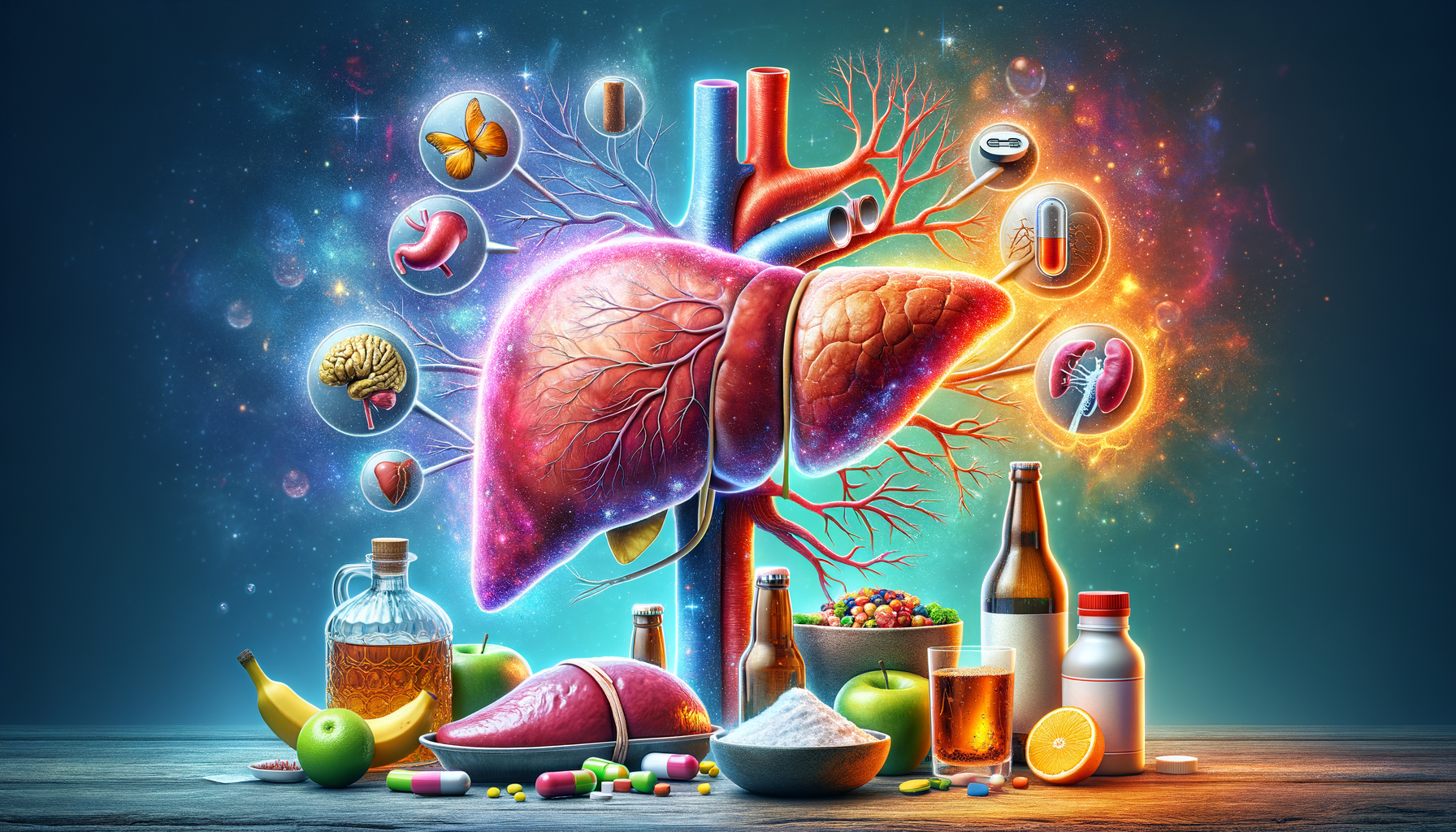
Early Signs Your Liver Needs Attention: What to Watch For
Understanding the Liver’s Role in the Body
The liver is often referred to as the body’s powerhouse due to its central role in various metabolic processes. It is responsible for detoxifying the blood, producing essential proteins, aiding digestion through bile production, and storing nutrients and energy. This multifunctional organ is crucial for maintaining overall health and well-being.
One of the liver’s primary functions is detoxification. It processes and eliminates toxins from the bloodstream, including alcohol, drugs, and metabolic waste. Without this vital function, toxins would accumulate, leading to severe health issues. Additionally, the liver plays a significant role in metabolism by converting nutrients from the food we eat into essential blood components.
Beyond detoxification and metabolism, the liver is integral to digestion. It produces bile, a substance that helps break down fats, making it easier for the body to absorb nutrients. The liver also stores glucose in the form of glycogen, releasing it when the body needs energy between meals or during physical activity.
Given its numerous responsibilities, maintaining liver health is paramount. A compromised liver can lead to a cascade of health problems, underscoring the importance of recognizing early signs of liver distress.
Common Early Signs of Liver Issues
Recognizing early signs of liver issues can be challenging, as symptoms are often subtle and easily overlooked. However, being aware of these signs can help in early diagnosis and treatment, preventing more severe complications.
One of the earliest signs of liver trouble is fatigue. The liver’s role in metabolism and energy storage means that when it is not functioning optimally, energy levels can drop significantly. Persistent fatigue, even after adequate rest, may indicate liver stress.
Another common symptom is jaundice, characterized by a yellowing of the skin and eyes. This occurs when bilirubin, a byproduct of red blood cell breakdown, accumulates in the blood due to impaired liver function. Jaundice is a clear indicator that the liver is not processing bilirubin effectively.
Other early signs include:
- Abdominal pain or swelling
- Dark urine and pale stools
- Nausea or vomiting
- Loss of appetite
- Easy bruising or bleeding
These symptoms warrant prompt medical attention to assess liver health and initiate appropriate interventions.
Factors Contributing to Liver Damage
Understanding the factors that contribute to liver damage is essential for prevention and maintaining liver health. Several lifestyle and environmental factors can negatively impact liver function.
Excessive alcohol consumption is one of the most well-known causes of liver damage. Alcohol is metabolized in the liver, and excessive intake can lead to inflammation, fatty liver disease, and eventually, cirrhosis. Limiting alcohol intake is crucial for liver health.
Another significant factor is obesity, which can lead to non-alcoholic fatty liver disease (NAFLD). This condition results from fat accumulation in liver cells, causing inflammation and scarring. A healthy diet and regular exercise are effective preventive measures.
Additionally, certain medications and supplements can be harmful to the liver when taken inappropriately or in excess. It is important to follow medical advice and be aware of potential liver-related side effects.
Environmental toxins, such as exposure to industrial chemicals and pollutants, can also contribute to liver damage. Taking precautions to minimize exposure, such as using protective gear and following safety guidelines, can help protect liver health.
Maintaining Optimal Liver Health
Maintaining optimal liver health involves a combination of lifestyle choices and regular medical check-ups. Adopting healthy habits can significantly reduce the risk of liver-related issues.
A balanced diet rich in fruits, vegetables, whole grains, and lean proteins supports liver function. Foods high in antioxidants, such as berries and leafy greens, can help protect the liver from oxidative stress. Reducing the intake of processed foods, saturated fats, and sugars is also beneficial.
Regular physical activity is another key component of liver health. Exercise helps maintain a healthy weight, reducing the risk of fatty liver disease. It also improves circulation and boosts the immune system, supporting overall health.
Avoiding excessive alcohol consumption is crucial, as is being mindful of medication use. Always consult healthcare professionals before starting new medications or supplements, especially if you have pre-existing liver conditions.
Regular medical check-ups, including liver function tests, can help detect potential issues early. These tests measure levels of liver enzymes and proteins in the blood, providing insight into liver health.
Conclusion: Prioritizing Liver Health
The liver is a vital organ that plays a crucial role in maintaining overall health. Recognizing early signs of liver issues and understanding the factors that contribute to liver damage are essential for prevention and timely intervention. By adopting a healthy lifestyle and staying informed about liver health, individuals can support their liver’s function and prevent serious complications.
Regular medical check-ups and open communication with healthcare providers are important steps in monitoring liver health. By prioritizing liver health, individuals can enhance their quality of life and ensure the longevity of this essential organ.